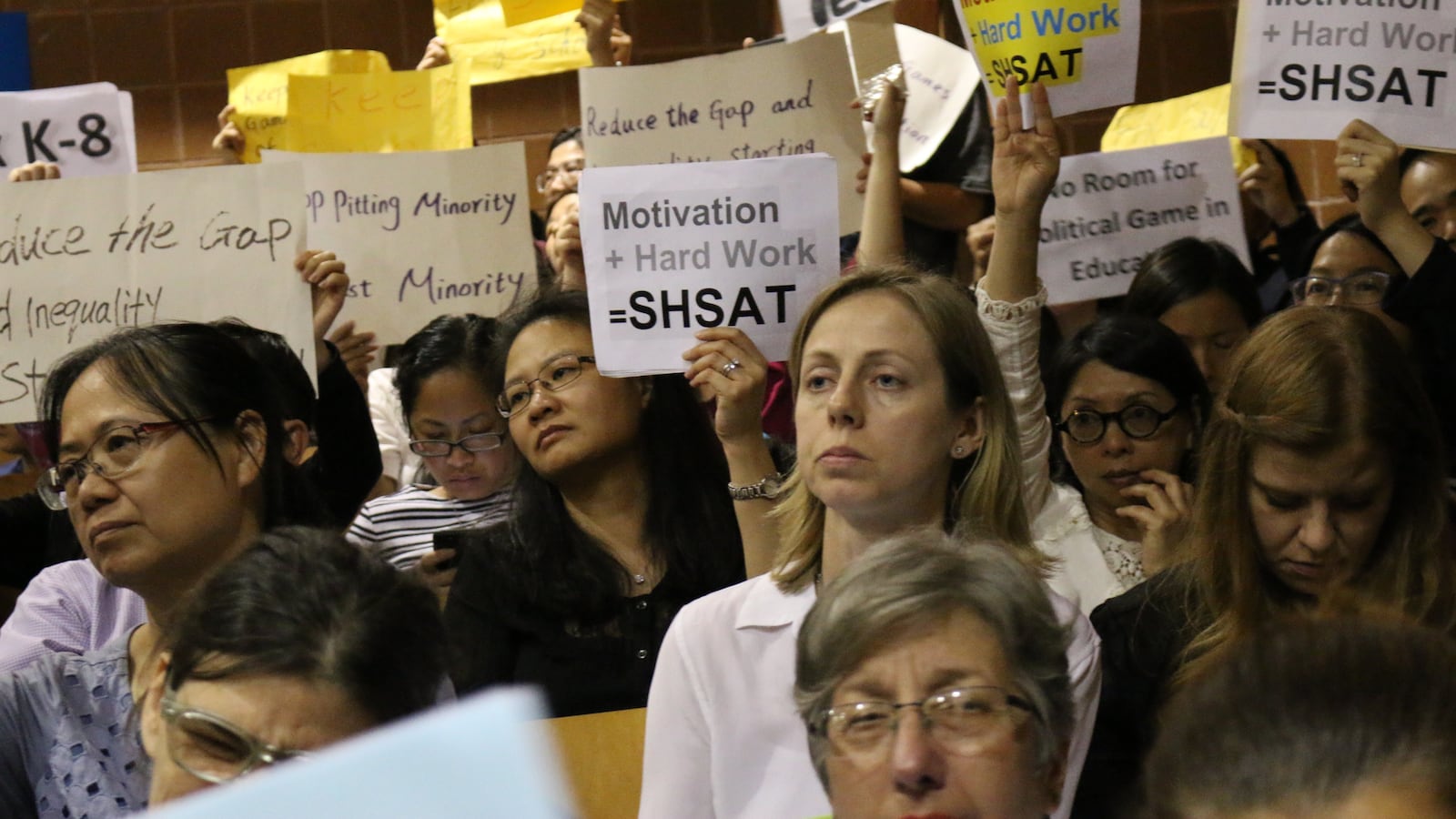In his more than two months in office, Schools Chancellor Richard Carranza has already found himself at the center of several explosive education debates, from integration, to testing, to the racial and ethnic make-up of the city’s vaunted specialized high schools.
All of those issues collided on Wednesday in a town hall in Brooklyn’s District 15, where parents and critics fired questions at the chancellor — and he answered each of them unflinchingly.
“In a public school system, there has to be as wide an opportunity as possible,” he said in answer to questions about the controversial proposal to change admissions standards at elite high schools such as Stuyvesant and Bronx Science, an issue that drew the most fervent protesters to the meeting.
In fact, the ideological clashes began well before the first question was posed, with a crowd of Asian parents outside the school angrily protesting the plans. Currently, those schools accept students based on the results of a single test and enroll a strikingly disproportionate number of white and Asian students. The city has proposed to nix the exam to try to admit more black and Hispanic students, who make up a majority of the school system.
Dozens of parents opposing the change chanted, “Keep the test,” and, “Save our schools,” which prompted an angry response.
“Don’t say that!” someone yelled. “Save the schools from who?”
Some critics said the diversity efforts will negatively impact other ethnic groups who have worked hard to earn a place in specialized high schools. Stella Li, a parent who hopes her toddler will one day attend a specialized high school, said the city’s plans would destroy the academic rigor of the schools and shut out deserving students.
“A lot of kids from the poor families, the low income families, they will lose their opportunity for a better education,” she said. “I wish my kids can grow up in a fair environment which doesn’t have disparity.”
Despite the furor, Carranza unapologetically defended the city’s plan to integrate specialized high schools, hailed for their track record of sending students to Ivy League colleges and high-powered careers, saying they are “for everyone.”
His comments were met with jeers from the crowd. “No quotas!” someone yelled.
Faced with questions about plans percolating in District 15 to integrate middle schools — an issue that has led to a fiery debate on Manhattan’s Upper West Side — Carranza got political. He said the country has failed to live up to Brown v. Board of Education, the landmark Supreme Court decision that declared segregated schools separate and unequal, and pivoted to the current political climate.
“There’s an environment in our nation where it’s OK to say racist things,” he said.
He also tackled testing in a district with a strong opt-out movement of parents who refuse to let their students take standardized exams. Carranza has previously called the movement an “extreme” reaction. During the town hall, he said it’s true that tests have been overused in the past — but he also said that it’s important to determine whether students are learning.
“I respect parent’s rights. I don’t encourage parents not to have their students test,” he said. “Let’s make it better. It’s important to know how our students are doing.”
That wasn’t the end of the controversy, as Carranza faced questions from one of the education department’s most ardent foes: Success Academy charter school network. Dozens of parents showed up to push the city for more room in public school buildings to expand a school in nearby Bedford-Stuyvesant.
Though the de Blasio administration has had a rocky relationship with the charter sector, Carranza has made it a point to visit charter schools, including Success Academy, as he gets to know the city. On Wednesday, the chancellor assured parents that the education department has identified space available in Brooklyn schools to allow the network to continue is rapid expansion.
Carranza’s strident performance should come as no surprise: In his first two months on the job, he has proven far more willing take on controversial issues than his predecessor, Carmen Fariña
Just days into his tenure, he offered a pointed assessment of the mayor’s turn-around efforts for struggling schools. The chancellor has bluntly criticized parents fighting integration plans on the Upper West Side, and then told a mother who said she was offended by his comments to take an anti-bias course — on a live radio show. He described a fundamental way the city’s school system works — allowing some schools to “screen” students for admission based on their academic record — as “antithetical” to public education.
On Wednesday, he stuck to a script he has followed since arriving in New York City.
“The conversation around segregation is not divisive,” he said. “Because the conversation around integration is American.”

